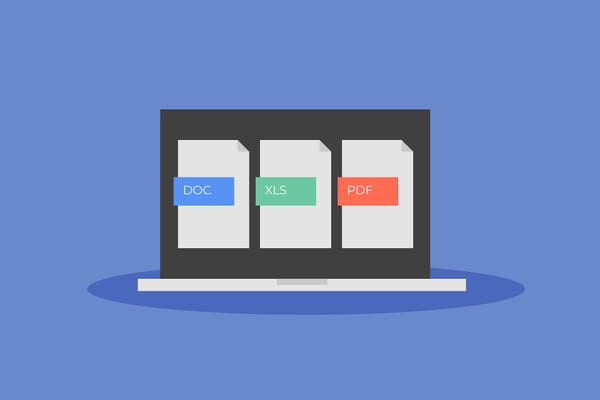Data Breaches in the Consulting Sector – How They Happen and How to Protect Your Firm

No organization is immune from the threat of data breaches. While industries like healthcare and finance often dominate cyberattack headlines, the consultancy sector is also extremely vulnerable.
With access to highly confidential client information, strategic business data, and sensitive financial details, consulting firms are a treasure trove for cybercriminals. The risks are even greater when you consider the variety of sectors covered by consultancies—each handling a unique set of sensitive information, making them susceptible to different forms of cyber threats.
From IT consultants tasked with overseeing critical infrastructure to management consultants advising on billion-dollar mergers, data breaches in the consulting world can unleash devastation. Whether it's intellectual property theft, financial manipulation, or leaked personal data, the fallout can be catastrophic not just for the consultancy itself but also for its clients.
In this post, we’ll explore five consulting segments, highlighting how cybercriminals can target each one, the potential consequences of a data breach, and what steps can be taken to prevent them.
1. Financial Consulting: Attacks on Client Financial Data
Between March 2022 and February 2024, the financial sector ranked second-most affected by data breaches, with $6.08 million on average per breach, according to Statista’s figures.
- Specific threats:
Financial consultants work closely with highly sensitive client data, including tax records, investment portfolios, and financial strategies. This information makes finance-focused consultancies a lucrative target for motivated cybercriminals. - How threat actors break in:
Attackers may exploit vulnerabilities in poorly secured cloud storage systems. Or they may use social engineering attacks to trick consultants into revealing login credentials. Once inside, they can steal client financial data, implant ransomware, or manipulate financial statements, causing major disruptions. - Consequences:
The loss or exposure of financial data could result in significant regulatory fines and penalties under GDPR, CCPA, or other data protection laws. Worse, clients may leave in droves, fearing that their sensitive information is no longer safe. - How to address the issue:
Enforce robust encryption for both data in transit and at rest, and ensure that sensitive documents are stored securely in compliant cloud systems. Implement a zero-trust security model and deploy a dedicated security solution to automate safeguarding your consultancy against unauthorized access and data exfiltration.
2. IT Consulting: Exploiting Weaknesses in Tech Implementation
- Specific threats:
IT consulting firms are often responsible for setting up, implementing, and maintaining their clients’ technical infrastructure. This makes them a frequent target for advanced persistent threats (APTs), ransomware attacks, and insider threats. - How threat actors break in:
Attackers can exploit unpatched vulnerabilities or plant malware during software updates, providing backdoor access to critical systems. - Consequences:
Once inside, hackers can access sensitive client data, compromise entire networks, and cripple infrastructure. A breach can inflict both financial and reputational damage, eroding client trust and bearing potential legal consequences. - How to address the issue:
Implement robust patch management, regular security audits, and penetration testing. Deploy dedicated endpoint protection to detect and neutralize threats before they cause damage.
3. Management Consulting: Leaked Strategy and Proprietary Data
- Specific threats:
Management consultants handle confidential data on strategy, mergers and acquisitions, restructuring plans, operational models, or other areas. This makes them prime targets for cyber espionage, where attackers aim to steal sensitive business intelligence. - How threat actors break in:
Phishing – especially spear-phishing targeting senior consultants – is a common tactic among hackers. Gaining access to emails or internal systems allows them to exfiltrate highly sensitive client information. - Consequences:
A data breach could result in the leak of proprietary strategies or insider information on M&A deals, damaging clients’ competitive positioning and market value. The consulting firm’s reputation would be severely compromised, leading to loss of business. - How to address the issue:
Implement encrypted communication channels, advanced email security tools, and regular phishing awareness training. With solutions like Bitdefender Ultimate Small Business Security, firms can benefit from integrated email and endpoint protection.
4. HR Consulting: Compromising Personally Identifiable Information (PII)
- Specific threats:
HR consultants handle vast amounts of PII, including Social Security Numbers, healthcare information, and employment records. Identity theft and bulk data exfiltration are common threats in this segment. - How threat actors break in:
Cybercriminals can infiltrate HR consulting firms by exploiting unsecured databases or vendor systems. Once inside, they can steal PII to sell on the dark web or use for fraudulent activities like identity theft. - Consequences:
PII exposure can lead to regulatory fines under privacy laws like GDPR. The firm may face lawsuits from affected individuals, and clients will lose trust in the company’s ability to safeguard sensitive information. - How to address the issue:
Enforce encryption of all PII data and regularly audit vendor security protocols. Use dedicated security software to protect data and detect breaches before they escalate.
5. Marketing Consulting: Disruption of Client Campaigns and Brand Reputation
- Unique threats:
Marketing consultants manage a client’s digital assets, including social media accounts, marketing campaigns, and advertising strategies. These assets make tempting targets for hacktivists or competitors looking to disrupt campaigns or damage brand reputations. - How threat actors break in:
Cybercriminals may exploit weak password policies or insecure API integrations to gain access to social media and marketing platforms. Once inside, they can delete campaigns, post false information, or leak marketing strategies to competitors. - Consequences:
A breach can lead to the sabotage of digital marketing campaigns, loss of brand trust, and the public dissemination of misinformation. The firm would also face significant reputational damage and lose key clients as a result. - How to address the issue:
Enforce strong password policies and use multi-factor authentication (MFA) for all digital accounts. Dedicated solutions like Bitdefender Ultimate Small Business Security can help detect unusual activity and prevent unauthorized access.
Secure Your Consultancy
As consulting firms handle increasingly sensitive data across multiple industries, the threat of a data breach will only escalate. Whether you're an IT consultant implementing critical infrastructure or an HR consultant managing personal data, the risks are real.
Bitdefender Ultimate Small Business Security is an extended version of our consumer-friendly security suite that covers every attack scenario, protecting your consultancy’s precious assets before the bad guys set foot in your network.
With advanced endpoint protection, anti-phishing tools, password manager, VPN, and real-time monitoring of data exposure, Bitdefender safeguards your sensitive client data and ensures your consulting firm operates in a secure environment.
In an era where trust is everything, for companies big and small, investing in comprehensive cybersecurity solutions is not just advisable – it’s essential for your firm’s long-term success.
tags
Author
Filip has 15 years of experience in technology journalism. In recent years, he has turned his focus to cybersecurity in his role as Information Security Analyst at Bitdefender.
View all postsRight now Top posts
How to Protect Your WhatsApp from Hackers and Scammers – 8 Key Settings and Best Practices
April 03, 2025
Outpacing Cyberthreats: Bitdefender Together with Scuderia Ferrari HP in 2025
March 12, 2025
Streamjacking Scams On YouTube Leverage CS2 Pro Player Championships to Defraud Gamers
February 20, 2025
How to Identify and Protect Yourself from Gaming Laptop Scams
February 11, 2025
FOLLOW US ON SOCIAL MEDIA
You might also like
Bookmarks







